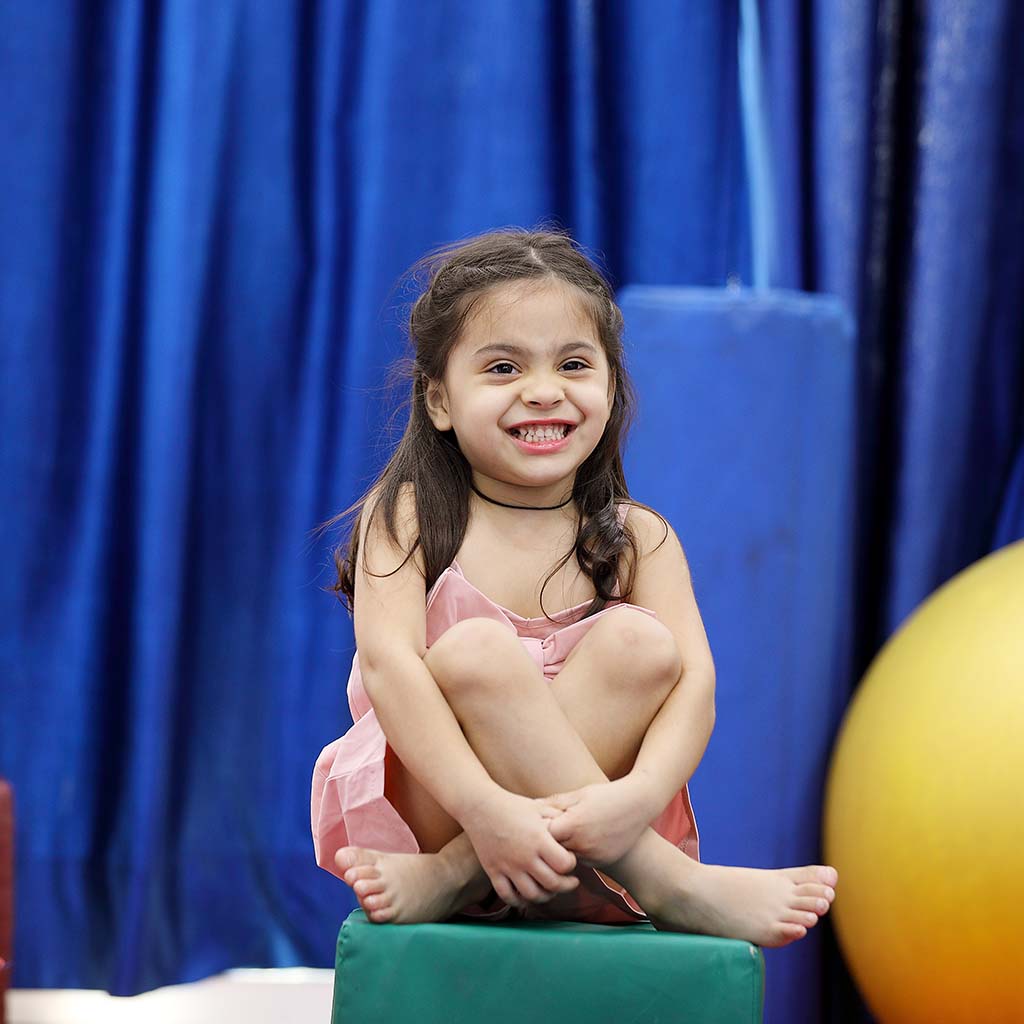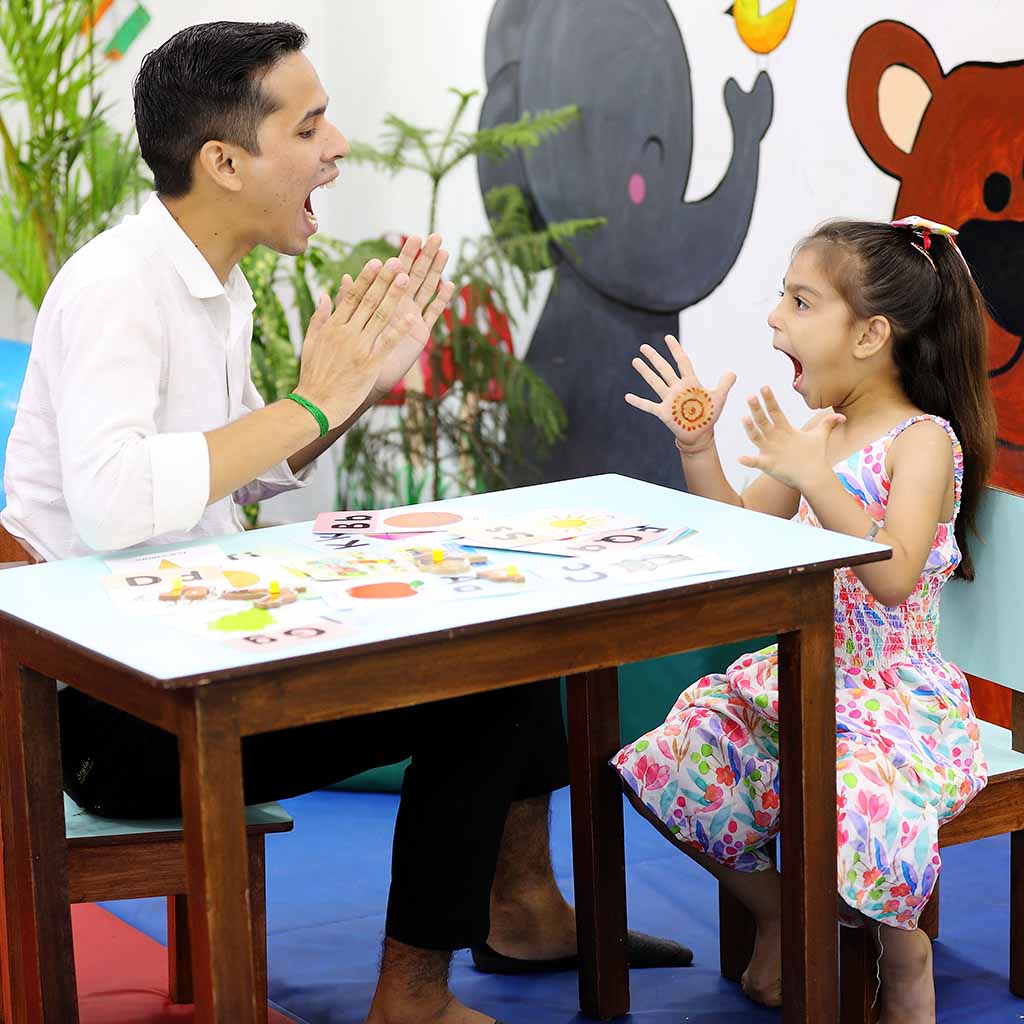Dyslexia
Dyslexia accounts for 80% of all learning disabilities. In 2016, the Dyslexia Association of India shared that nearly 35 million children in India were diagnosed with dyslexia. Unfortunately, not much has changed since then. Millions still go undiagnosed because there is very little awareness in India about this condition. People often assume children with learning disabilities are less intelligent or just stubborn. In reality, these children struggle to perform well in school or follow basic instructions. At Continua Kids, we aim to change this by spreading awareness, offering early diagnosis, and providing the right dyslexia treatment to help children reach their full potential.
Book An Appointment
Autism affects about 1% of children worldwide, but in the USA, about 3.2% are identified.
When more people learn about autism, they notice the signs sooner. That means kids can get help earlier and that really matters. Continua Kids the best autism treatment centre. We offer early support and therapies that help children grow and learn better.
Getting the right support early has changed the lives of many children with autism symptoms. We’re having more conversations about autism but the truth is, too many families still don’t know how to get started or find the right support. That’s exactly why these conversations matter, so families feel seen, heard, and supported every step of the way.
What is Autism Spectrum Disorder (ASD)?
Autism Spectrum Disorder (ASD) is a type of developmental difference that can make things more difficult to perform for kids who have been dealing with it for a long time. Signs of autism include socialising, talking, and behaviour that is a bit more challenging. Children with autism may find it hard to talk to others or understand emotions. They might learn things differently than other children. Some children catch up with others quickly, while some may need more time and help.
Types of Autism Spectrum Disorder
- Autistic Disorder (classic autism)
- Asperger’s Syndrome
- Pervasive Developmental Disorder – Not Otherwise Specified (PDD-NOS)
- Childhood Disintegrative Disorder (CDD)
Signs and Symptoms of Autism in Children
Signs of autism can show up as early as 18 months or even earlier. You may not need to worry unless your child is very behind in skills other kids their age usually have. Some children take a little longer to talk or walk and still grow up just fine. So, parents don’t need to worry right away. But if your child is falling behind in key skills like smiling back at people, trying to speak or babble, using simple gestures like waving, making eye contact, or showing interest in others then it’s a good idea to speak with the best doctor for autism or child development expert. Early signs don’t always mean autism, but noticing them early gives your child the best chance to get help, if needed.
Socialization and Communication
- Doesn’t play simple games with others
- Avoids or makes very little eye contact
- Doesn’t show understanding of feelings like sadness or pain (by age 2-3)
- Gets confused by facial expressions like smiling or anger
- Didn’t respond to gestures or pointing even a year ago
- Didn’t babble or speak by age one
- Doesn’t follow where someone is pointing
Behavioral Skills
- Repeats same actions or words again and again
- Focuses too much on one object
- Has mood swings or acts suddenly
- Can’t say what they want; feels frustrated
- Gets annoyed if stopped from doing something
- Moves body in unusual ways
Other Difficulties
- Has trouble sleeping
- Has eating problems
- Talks or understands late
- Learns or solves problems slowly
- May get seizures
- Feels tired often
Evaluation Process for Autism Diagnosis
First Step – Development Check and Monitoring
Regular screenings at 9, 18, 24, and 30 months are crucial for early detection. Specialists ask detailed questions about behavior and development milestones.
Second Step – Full Developmental Evaluation
When needed, a multi-disciplinary team conducts in-depth evaluations to diagnose ASD and plan support.
Personalized Autism Diagnosis and Treatment
At Continua Kids, our experienced team provides care tailored to each child. Our therapists and educators work patiently, creating a fun, pressure-free learning environment.
We offer:
- One-on-one therapy sessions.
- Small group learning.
- 25 hours per week of guided learning.
Visit us or book online to learn how we can help your child thrive.

Core Therapies at the Best Autism Centre
Continua Kids is the best autism centre as it offers personalized therapies for children with special needs that are available in one place.
- ABA Therapy: This therapy helps fix problem behavior and teaches good habits through rewards. Early support for the therapist can significantly enhance a kid’s learning outcomes.
- Occupational Therapy: This helps children speak clearly and learn language so they can talk and understand others better.
- Speech Therapy: This therapy helps children move better, get stronger, improve balance and reach full physical ability.
- Physiotherapy: This supports children who need different ways to learn that regular classrooms may not offer. It helps them become more independent and do well in studies.


FAQ'S
Contact Us
If you feel your child may have Dyslexia or is struggling with reading, writing, or spelling, you can consult our Dyslexia specialists for expert guidance.